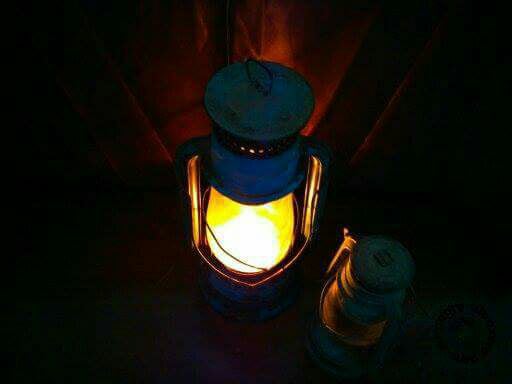With no solution in sight to the country’s electricity crisis—after the near-total destruction of the power sector due to repeated drone strikes by the Rapid Support Forces (RSF) on power plants, along with looting of cables and other equipment that wiped out more than 70% of Sudan’s electricity production capacity—many Sudanese have turned to kerosene and gasoline lanterns, known locally as misraja, to light their homes. This return to traditional means of illumination has become a necessity for survival under the harsh conditions imposed by the war.
These lanterns operate on small amounts of fuel, making them relatively affordable, and provide enough light for movement inside the home. Before nightfall, people clean their lanterns and replace the thick wick inside to prevent black smoke from blocking the flame. The lanterns typically burn until dawn.
A Step Backward
Mahy Abdel Azim, a resident of the Hattana neighborhood in Omdurman, explained:
“Most of those who returned to Khartoum after displacement endured harsh conditions in camps that lacked even the most basic necessities. They hoped their return home after fleeing the war between the army and the RSF more than two years ago would mark the end of their suffering. But they were shocked to find no electricity—something that is essential to life itself.”
He added:
“Very few residents managed to solve the electricity problem by installing solar panels, but their cost is prohibitively high for the vast majority of Khartoum’s population, who have been financially exhausted by the war. That’s why people have resorted to traditional lanterns, since the power sector has failed to restore electricity either fully or partially.”
Abdel Azim stressed that using lanterns does not align with today’s security needs:
“With crime spreading at alarming levels, we need well-lit streets at night. Still, having a lantern inside the home brings a measure of comfort and safety, and its affordability makes it indispensable. But this war has set us back decades and created a painful reality that is hard to endure.”
Complex Circumstances
Community activist Zain Khidr noted that those trapped in Khartoum during the shelling have survived under extremely difficult conditions for over two years:
“Most people have no steady income to support their families because work has ground to a halt. The electricity crisis has become a major burden and is one of the main reasons many residents have chosen not to return to Khartoum, even after the army regained control from the RSF.”
Khidr added:
“While lanterns are festive symbols during Ramadan in many Muslim countries—lighting up homes, shops, and streets—people in Sudan’s remote villages have long relied on them for nightly trips to mosques and fields. Today, however, lanterns have become Khartoum’s primary source of light due to the total blackout.”
He continued:
“The current crisis has not stopped at lighting. People have also returned to other outdated solutions—like using heavy iron charcoal irons for clothes and traditional stoves fueled by wood or coal due to the scarcity and high price of cooking gas.”
Khidr argued that government calls for residents to return to the capital and participate in reconstruction were premature:
“Ensuring a reliable electricity supply should have come first. Without it, people cannot settle back into normal life, as electricity is tied not just to daily living but also to security, healthcare, and the economy.”
Different Alternatives
Economist Abdel Wahab Jumaa explained:
“The state’s failure to solve the electricity crisis has pushed Khartoum residents—whether those still trapped there or those who recently returned after the army regained control—to look for alternatives. For some, this has meant relying on lanterns, while others turned to solar systems, though only a small minority can afford them.”
He stressed the government’s duty to provide electricity:
“It must restore power to citizens and operate vital services like hospitals and water stations. Authorities should also regulate solar panel imports, ensure quality checks, and exempt them from customs fees so that they become affordable rather than a burden on families.”
Jumaa warned of opportunism:
“Since the war began, profiteers have exploited citizens’ suffering, especially with the uncontrolled spread of solar panels sold by unqualified individuals. This poses serious risks and must be addressed urgently to protect people in these already dire circumstances.”
He concluded:
“Solar systems were expected to expand, as they had already been used on a limited scale before the war due to the electricity sector’s fragility. But demand has now skyrocketed, driving prices to record highs beyond the reach of ordinary Sudanese.”
